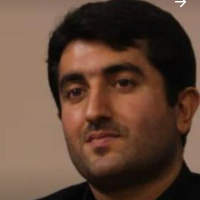The Impact of the Ukraine War on the Role of the EU in the West's Confrontation with Russia
The crisis between the world powers in Ukraine began when Viktor Yanukovych, the country's former president, refused to sign a free trade and cooperation agreement with the European Union aimed at building closer ties with Russia. On February 22, 2014, following street protests against the government and the deterioration of the internal situation in Ukraine, Yanukovych was removed from the presidency by a vote of the Ukrainian parliament. Following these events, the “Crimean Peninsula” was occupied by Russian forces under the title of protecting the Russians of this autonomous region. A few days after these events, the people of the Crimean Peninsula declared their 96% approval to join Russia in a national referendum and the peninsula officially became part of Russian territory. After this incident, the scope of differences between the two countries remained and manifested itself in different ways until finally the war between the two countries started in 2022 and the field and military conflict has continued until now.
Research Question:
How did the European Union react to the security crisis in Ukraine from 2014 to 2023 in relation to Russia?
Research Hypothesis:
The hypothesis is that the European Union’s response to security threats between 2014 and 2023 was due to the lack of a coherent security and defense policy against Russia's uncompromising policy towards the developments in Ukraine, a result other than the annexation of Crimea to Russia in 2014 is the escalation of conflicts in the Donbass and the Sea of Azov and finally the field war and the annexation of the eastern regions of Ukraine to Russia by 2023.
Methodology and Theoretical Framework:
In this article, based on a qualitative method and a systematic review, we examine the issue in the context of the concept of acting and lack of acting. The tools for collecting data and information were based on the existing method in the library format and the use of reliable internet sources.The European Union is considered as an important actor in the international community and according to the developments of the international system, it seeks to play a positive role and improve its position in various fields. Therefore, in an attempt to critically evaluate the performance of the European Union in response to security threats in the Ukraine crisis, we use the concept of activism as used by Burston and Volger in 2006. Activism has been a central concept in EU foreign policy since 1977. This concept refers to the active and conscious capacity of the European community in relation to other actors of the international system and the response to external crises, such as the Ukraine crisis is fully applicable to the concept of European activism. The acting parameters considered by Barston and Volger namely “Opportunities, Presence and capabilities” are designed for the international system. These parameters examine the strengths and weaknesses of the European Union as a provider of security in Eastern Europe. Thus, it is an assessment of the EU's ability to influence foreign relations by shaping the “perceptions, expectations and behaviors of other actors in international politics”. Therefore, the parameters of “opportunity, presence and ability” can show the evaluation criteria of the active European Union in the field of providing security and capabilities of this actor in the Ukraine crisis.
According to the findings, the European Union’s behavior towards the Ukraine crisis has changed from a passive actor to an influential one, but their uncoordinated defense behavior so far has been nothing but the imposition of sanctions, the establishment of a joint security and defense mission in November 2014, the Eastern Partnership program and the use of all-out support for Ukraine to counter Russia's powerful role.
This article, from November 2013, describes a series of important points in the gradual evolution of the conflict in Ukraine, including: Yanukovych’s decision not to sign the accession agreement, the emergence of the internal crisis and the fall of Yanukovych’s government, the annexation of Crimea to Russia, the war in Donbas and the downing of the plane MH17 and finally, it examines the war in Ukraine due to the lack of EU role before the war and the active role of Ukraine after the war. During the annexation of Crimea, the EU played the role of a neutral actor with no interest in the crisis and despite the EU’s continued peace-building efforts, which were carried out through the launch of a special mission to the Organization for Security and Cooperation in Europe in November 2014, due to its powerful role in Central Eurasia and Ukraine, the Kremlin was able to defeat the Union in this security crisis as it achieved its goals in this regard by annexing Crimea and building a bridge connecting Crimea and the Russian mainland in May 2018. As a result, by wasting the opportunity, presence and ability, the European Union failed to demonstrate the international community’s expectations for an effective role in the Ukraine crisis as well as in the Balkan conflicts. Even as Donbass elections in November 2018 confirmed Russia’s annexation, EU officials like Mogherini only condemned Russia’s actions in Ukraine. However, after the start of the war in Ukraine, the reactions of the European Union were accompanied by many changes and created the impression that it would distant itself from neutrality and passivity and will fully support this country.
European Union , Russia , Ukraine , Crimean Peninsula , Sea of Azov , War
-
The US-Sino competition in the field of artificial intelligence; From technonationalism to technogeopolitics
Saeed Pirmohammadi *, Mehdi Hedayati Shahidani, Seyed Amir Niakooee
Journal of Countries Studies, -
Netanyahu's psychological characteristics and its effect on Israel's approach to the Gaza war (2023)
Amirroham Shojaie *, Mehdi Hedayati Shahidani
Journal of Crisis Studies of the Islamic World,


